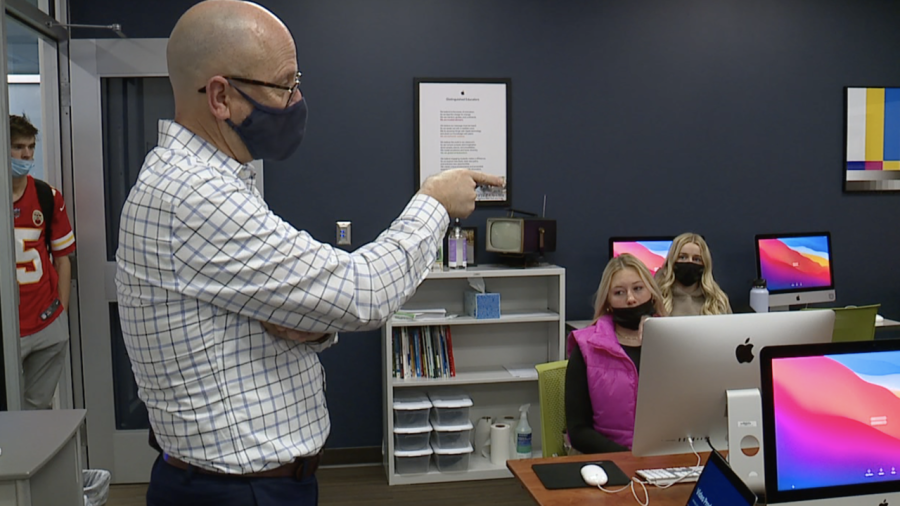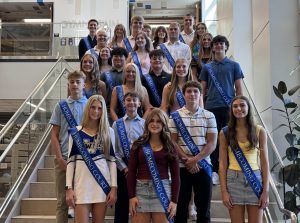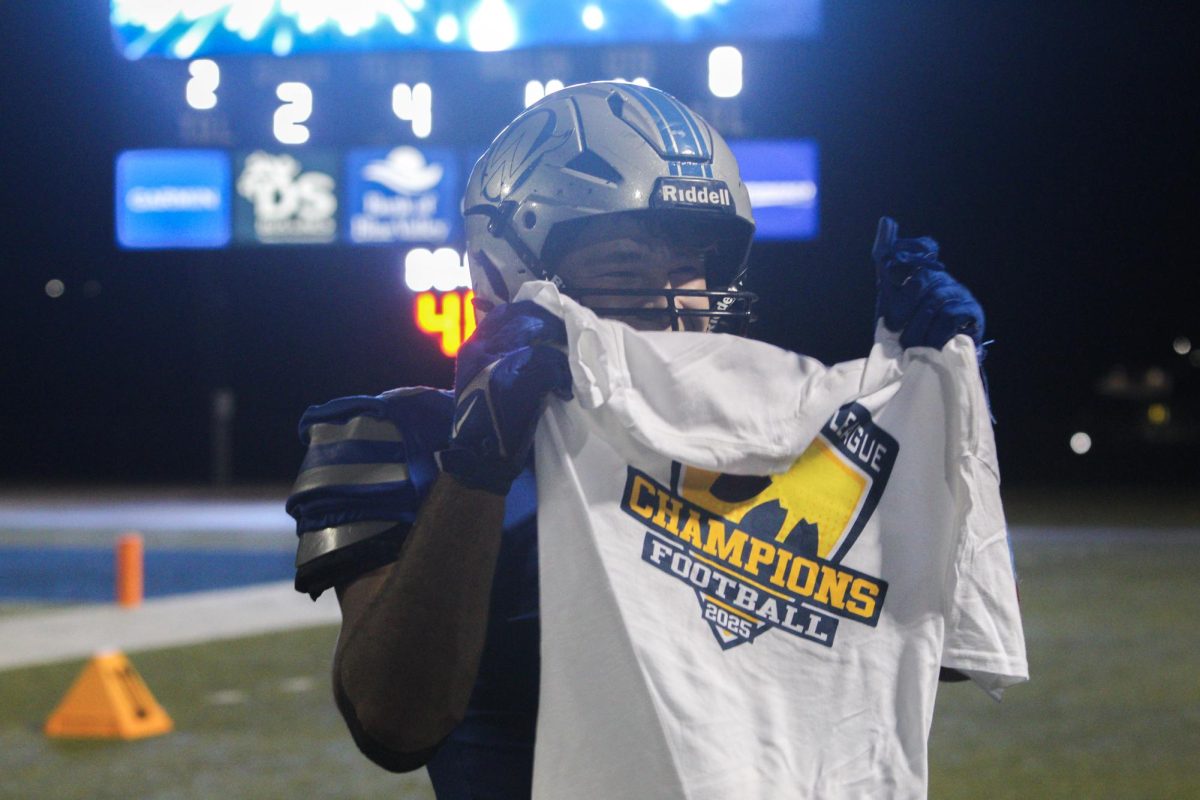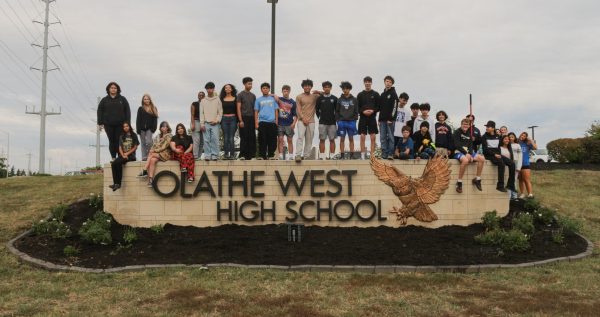Olathe West celebrates National News Literacy Week by reflecting on how it is taught in classrooms
Video Production teacher Doug Kapeller discusses News Literacy Week with his fifth hour. Olathe West gets features on KSHB news for news literacy week with a news segment and story written, produced, and edited by OWTV and OW Owl Post students.
January 31, 2022
The last week of January marks National News Literacy Week, where teachers, students and the community come together to discuss how to discover and utilize good news sources and information. The week is a good reminder of what it means to be news literate and why it is so important in this day and age to look to reliable sources for information.
That is exactly what the students and teachers at Olathe West High School did this week.
“News literacy is just being able to understand the news, the media and all the headlines and information that you get – whether it’s TV, the internet or something someone shared online,” journalism instructor and publications adviser Julia Walker said. “Just being able to digest it and understand, ‘Is it reliable? Is it trustworthy? Does it have a bias to it?’ And just being smart about the way you get your news.”
Teaching young adults news literacy has never been more important as many are surrounded by misinformation and misleading sources on social media.
“I think these news literacy skills are important for young students right now because they get so much information poured on them every minute of the day,” video production teacher Doug Kapeller said. “I think people want to be trending on social media, and they may not have all the correct facts when they post something because they want to be the first one to post it.”
However, students are becoming more aware of unreliable information they see on social media, as many are now being taught news literacy in their English and journalism classes.
“Where I see it most is probably Twitter,” senior Sydney Brown said. “It’s uncensored there. Anyone can just post anything they want.”
Teachers at Olathe West have discovered creative ways to teach news literacy in their classrooms. In Walker’s English classes, students do research projects and examine the sources they got their information from. In her journalism classes, she takes a different approach.
“I have my students take inventory of where they get their news,” Walker said. “Whether it’s through Snapchat, or cable news or the internet, we just kind of dive into the pros and cons to all of those, and see what’s more trustworthy than others.”
Kapeller has another method for how he approaches news literacy education in his video production class.
“We look at some of the things on social media,” Kapeller said. “We decide if they’re true or not, and how the person decided to share the information, what their sources are, if they’re primary sources or if they’re secondary sources.”
Other students are learning how to decipher sources by taking classes that are related to news or broadcasting.
“I took an intro to journalism class my freshman year,” junior Emma Hale said. “That’s where I was first kind of brought to the attention to the way that news can be misleading.”
Student journalists have even taken what they have learned about news literacy and applied it to their own work, whether it was citing reliable sources or making sure to fact check their own work. Walker discussed how her student journalists apply news literacy to their work.
“We talk about just getting a wide variety of sources,” Walker said. “It’s really important that we try to interview diverse sources that are going to have different perspectives on things and different viewpoints. And we try to fact check and be a good example of a trustworthy news source.”
When asked about how news literacy can be applied to everyday life, Kapeller replied that he believes it can be applied to anything in life no matter what career or life path a person goes on to.
“We shouldn’t believe the first thing we hear,” Kapeller said. “Making sure that we look at multiple sources, and take a deep breath and completely understand the slant that the person who posted the Tweet is trying to convey. It’s a tough thing because we want things that are immediate and we want to respond immediately.”
Walker also discussed the practical application of news literacy and why it is important that students are taught how to be news literate before entering adulthood.
“The news and information is all around you,” Walker said. “It’s not just turning on the news at six o’clock. You’re exposed to things every day. So, I think it’s really important to learn that when you’re young so that you can be equipped to be a more informed citizen and be better educated moving on throughout your life.”
This story originally was published on KSHB.com with an accompanying video segment airing on Jan. 28.








